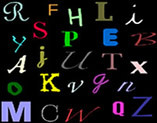You already know that the hyphen is used in three situations:
a) to link the elements of compound words or derived by prefixing:
cauliflower
tallow stick
b) to join unstressed pronouns The verbs:
offered him
I will take her
c) to transline, that is, syllabic separation from one line to another:
student
run
However, some specific rules need to be carefully observed regarding the use of the hyphen in compound words, such as:
1) A hyphen is used in compound words whose elements have lost their proper meaning:
Rainbow
nice pleasure
are you southeast
2) A hyphen is used in compound words that have as the first element a adjective reduced or not:
Anglo-Brazilian
historical-geographic
luso-brazilian
3) A hyphen is used in compound words that have the radicalsauto-, neo-, proto-, pseudo-, semi-, when the next element starts with H:
neo-humanism
protohistoric
pseudo-hero
semi-man
4) A hyphen is used in compound words that have the radical pan-, when the next element starts with H:
panhellenic
5) A hyphen is used in words composed with adverbs good and bad, when they form with the element that follows them a syntagmatic and semantic unit and this element starts with a vowel or H:
blessed
welfare
unlucky
grumpy
6) A hyphen is used in compound words that have the syntagmatic units without, beyond, below, just:
unceremoniously
overseas
beyond borders
newlywed
There are some exceptions according to the New orthographic agreement:
- Parachute – not “parachute”.
- Self analysis: New Accord eliminated the hyphen when the other element starts with a vowel.
- semi-rectal: New Accord eliminated the hyphen when the other element starts with R, with duplication of this consonant.
- neo-unionism: New Accord eliminated the hyphen when the other element starts with S, with duplication of that consonant.
- Pan American: New Deal maintains the hyphen when the second element starts with vowel, H, M or No.
- Circum-navigation: New Deal maintains the hyphen when the second element starts with vowel, H, M or No.

